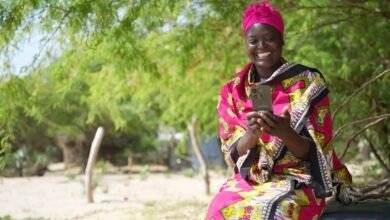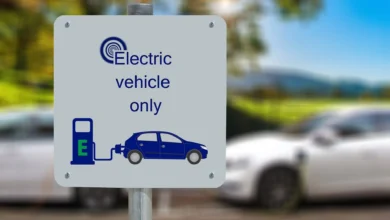
Africa’s digital payments economy is on a significant upward trajectory, with projections estimating a market size of $1.5 trillion by 2030. This is according to a new Mastercard-commissioned report by Genesis Analytics. Mastercard is aligning its efforts with this growth by scaling its investments, partnerships, and innovation efforts across the continent. The company’s current strategy hinges on three pillars: empowering micro, small, and medium enterprises (MSMEs), accelerating fintech innovation, and simplifying cross-border payments.
Context: Internet Growth and Financial Inclusion Driving Digital Payments
The shift toward a digital economy is being fuelled by two major trends across Africa — growing internet penetration and increasing financial inclusion. The report indicates internet access is set to grow at a compound annual rate of 20%, while financial inclusion is expanding at 6% per year. These twin trends are expected to boost digital transaction volumes across the region, as consumers and businesses move towards contactless payments and digital platforms.
Mastercard’s Focus Areas in Africa
Mastercard’s renewed commitment is built on decades of presence in Africa and now revolves around the following core areas:
1. Enabling Africa’s MSMEs
Micro, Small and Medium Enterprises account for more than 50% of Africa’s Gross Domestic Product, making them a critical part of the economic engine. Mastercard’s strategy to empower these businesses includes both digital tools and access to financial services.
Key initiatives include:
- Community Pass: A digital platform designed to connect rural and underserved communities to a wide range of services. Mastercard plans to onboard 15 million users in Africa within five years as part of a larger initiative with the African Development Bank aimed at reaching 100 million individuals and businesses.
- Tap on Phone and SME-in-a-Box: These are digital acceptance tools that allow small merchants to accept contactless payments using mobile devices, helping them bypass traditional banking infrastructure.
- Track Micro Credit Program: Provides access to microloans by leveraging transaction data to assess creditworthiness. Thousands of micro-merchants have already benefited.
- Entrepreneurship Resources: Free learning programs like The Entrepreneur’s Odyssey and Mastercard Trust Center aim to equip MSMEs with essential business skills and cybersecurity awareness.
2. Empowering the Fintech Ecosystem
Africa’s fintech sector has seen a boom, with nearly half of the existing fintech companies founded in the last six years. These firms have collectively raised $6 billion in equity financing since 2000, highlighting investor confidence in the space.
Mastercard is supporting this ecosystem through:
- Partnerships with telcos and banks: Collaborations such as those with Kenya’s M-Pesa and MTN Group Fintech have expanded digital financial access to millions of previously unbanked individuals.
- Digital wallet and e-commerce integrations: Mastercard has worked with multiple platforms to embed payment capabilities, enabling seamless digital commerce.
- Fintech Express Program: This offers a streamlined process for fintechs to issue cards, backed by Mastercard’s identity verification, biometric security, AI-driven fraud protection, and open banking capabilities.
3. Scaling Remittances and Cross-Border Payments
Cross-border payments play a pivotal role in Africa’s financial ecosystem, with the World Bank reporting that the continent received around $100 billion in remittances in 2023 — about 6% of Africa’s GDP.
Mastercard’s efforts in this space include:
- Mastercard Cross-Border Services: Offers a unified, secure platform for transferring money globally through bank accounts, mobile wallets, cards, or cash pickup.
- Local Partnerships: Collaborations with Access Bank and Equity Bank are simplifying and securing cross-border transactions for individuals and businesses in multiple markets.
These efforts not only facilitate the inflow of diaspora funds but also enable African businesses to engage more effectively in global commerce.
The Broader Picture: Building an Inclusive Digital Economy
Africa is expected to host nine of the world’s 20 fastest-growing economies in the near future. Mastercard’s approach is rooted in supporting this momentum by enhancing digital infrastructure, deepening public-private collaborations, and ensuring financial systems are inclusive.
While the company’s vision is future-oriented, it is also grounded in immediate action — from developing tools for everyday merchants to building regional payment rails that support continental trade and integration.
Final Thoughts
Africa’s digital future is not just a story of technology — it is one of access, resilience, and transformation. Mastercard’s strategy touches on multiple points of leverage across the economic spectrum, from rural farmers to fintech startups, and from informal merchants to global remittance corridors.
Yet, the success of such a strategy also depends on wider systemic collaboration — regulators creating enabling frameworks, telcos expanding infrastructure, and consumers adopting new ways to transact. As Mastercard aligns itself with Africa’s digital ambitions, the real question will be how inclusive and sustainable this transformation becomes in practice.






